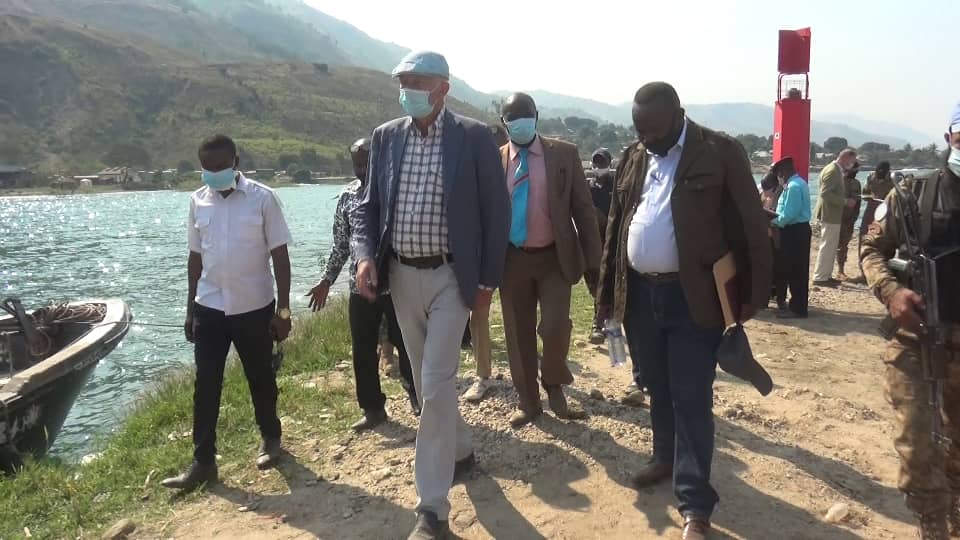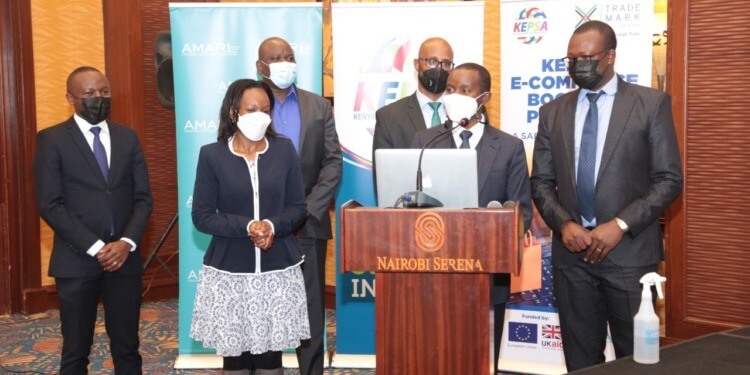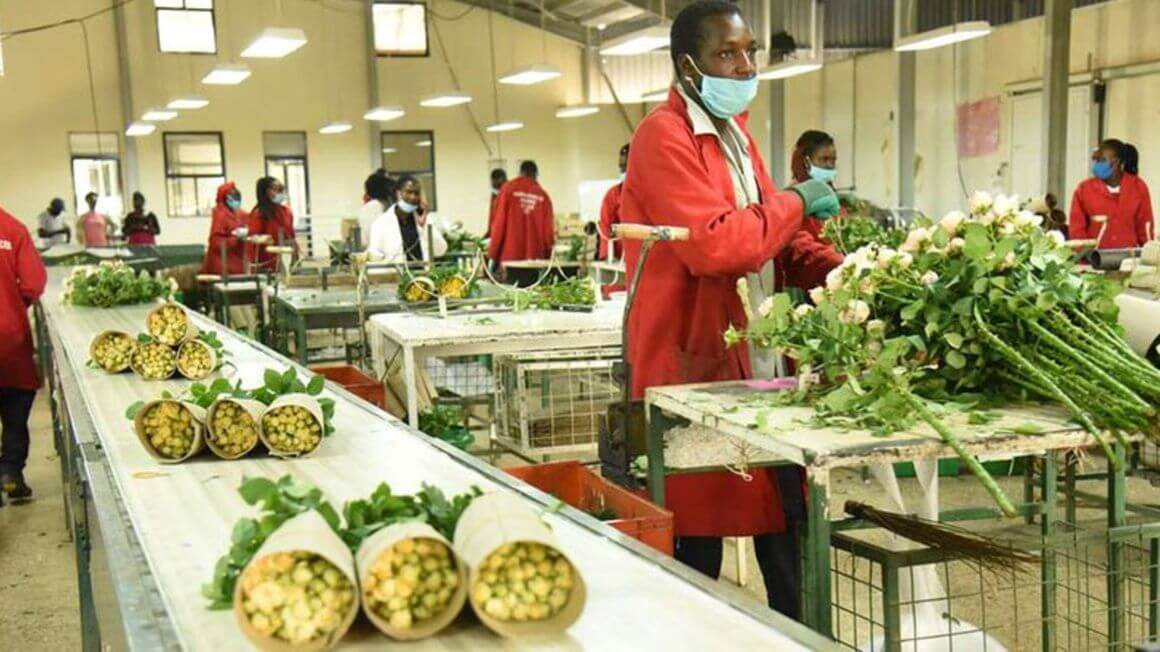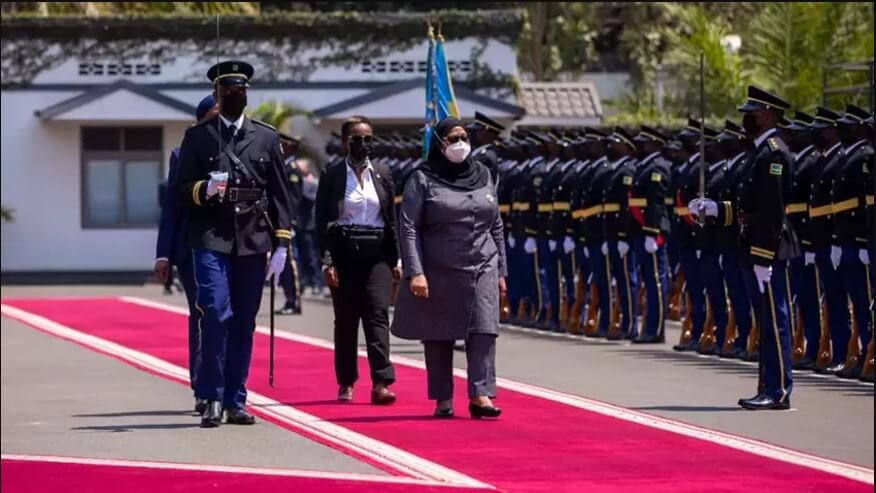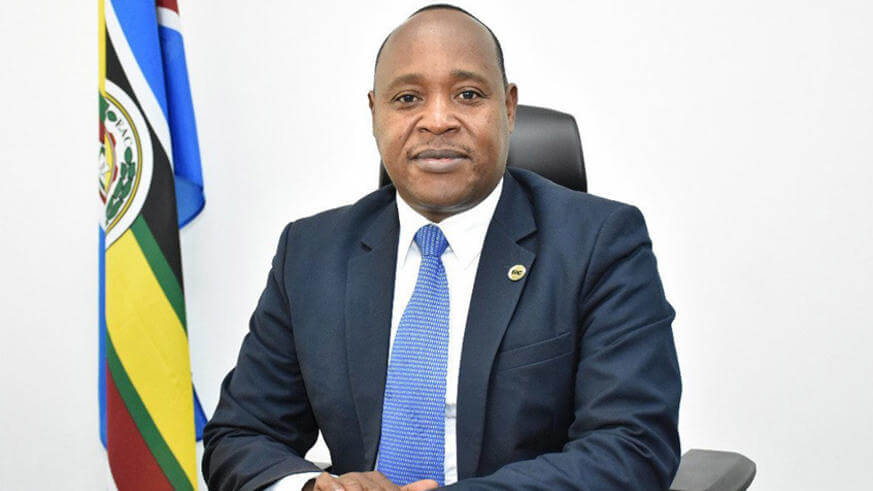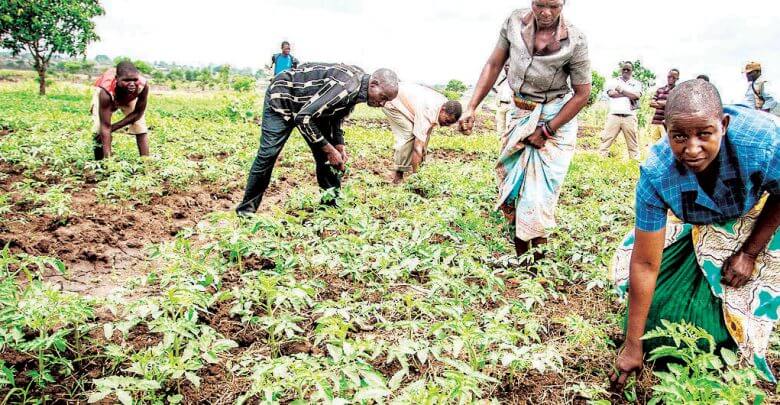Dutch Ambassador to the Democratic Republic of Congo (DRC) H.E. Jolke Oppewal toured the port of Kalundu on Friday July 30th, 2021.The visit was to assess progress of a Port rehabilitation project funded by the government of Netherlands through TradeMark Africa. The envoy expressed optimism for peace and stability in Kalundu and environs, noting that this was key for social economic development of the region, observing that instability was slowing down key projects. The ambassador also called on all actors to work together to foster peace in the region. The Manager in Charge of the Port, Shabani Kyalumba thanked the Dutch Government and TradeMark Africa for their commitment towards rehabilitation of the second port in DRC. He explained that Phase 1 of the current project involved dredging the port which had last been dredged in 1998. Phase 2 which is expected to now commence will entail construction of an administrative block to house all government agencies working at the port, install modern surveillance and lighting services and as well as fence the Port. Speaking during the visit, the Mayor of Uvira Kiza Muhato hailed the project as one that would improve the trading capabilities of the region. The mayor also called on the Dutch government to support improve port accessibility, especially upgrading of the road linking the Port of Kalundu and Bukavu town and consider provision of handling equipment at the port to enhance quick evacuation of cargo. [download id="60512"]
Dutch Ambassador to DRC H.E. Jolke Oppewal Visits the Port of Kalundu in Uvira
Posted on: August 3, 2021
Posted on: August 3, 2021

